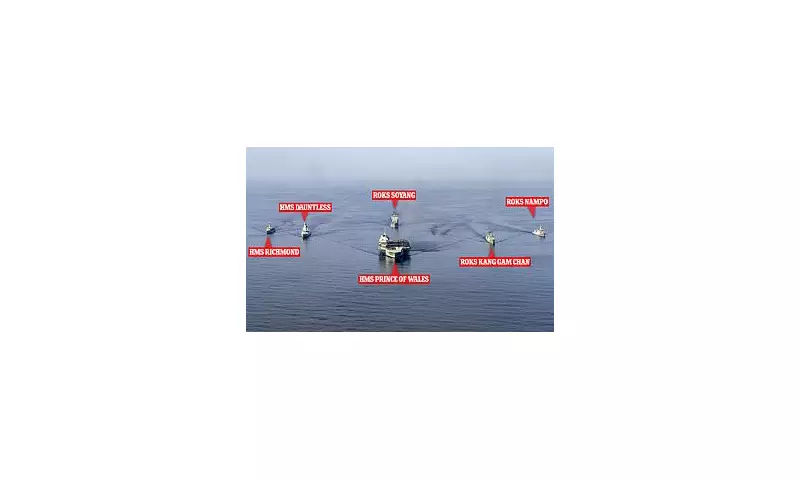
In a formidable display of maritime power and diplomatic unity, Britain's largest warship, HMS Prince of Wales, has been spearheading joint naval operations with South Korean allies in the strategically vital Indo-Pacific waters. The deployment marks a significant moment for the UK's 'Global Britain' strategy, projecting strength and reinforcing security partnerships far from home shores.
The colossal 65,000-tonne aircraft carrier, a symbol of British naval engineering prowess, sailed in formation with an impressive flotilla of Republic of Korea Navy vessels. This coordinated manoeuvre serves as a stark reminder of the UK's unwavering commitment to a free and open Indo-Pacific, a region of critical global importance.
A Strategic Pivot to the East
This deployment is far more than a simple port visit or routine exercise. It represents the very core of the UK's foreign policy shift towards the Indo-Pacific, a region fraught with complex geopolitical tensions and crucial trade routes. The presence of the Royal Navy's flagship is a tangible commitment to regional allies and a clear statement on upholding international law.
The Tip of the Spear: HMS Prince of Wales
As the second of the Queen Elizabeth-class aircraft carriers, HMS Prince of Wales is the embodiment of British military capability. Its journey to the Indo-Pacific, following a extensive repair period, signals the vessel's full return to operational duty and its readiness to serve as a floating command centre for allied forces.
The joint drills encompass a wide range of high-end warfare training, designed to enhance interoperability between the two navies. These exercises ensure that British and South Korean forces can operate seamlessly together in response to any potential crisis, from maintaining freedom of navigation to providing humanitarian aid.
Reinforcing a Global Britain
This mission solidifies the UK's role as a key security partner in the region alongside allies like South Korea, Japan, and Australia. It underscores a foreign policy that is actively engaged in shaping global stability, demonstrating that Britain remains a major player on the world stage with the hardware and the resolve to back its strategic interests.





